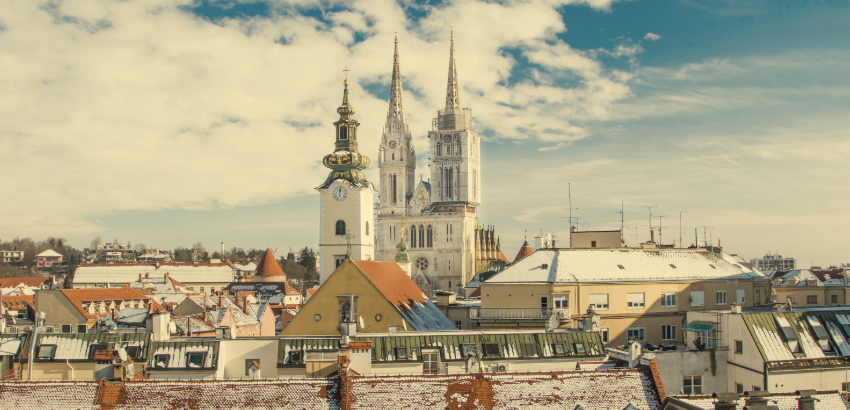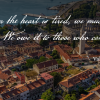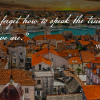
Published: August 1998
View the Original Newsletter: Iskra-15.pdf
About this issue:
The fifteenth issue of Hrvatska Iskra radiates a sense of resilience and pride. It bridges Croatia’s triumphs on the world stage with the quiet strength of its people rebuilding at home and abroad. Through reflections by Valentina Krčmar, community updates, and cultural stories, this issue captures the hope and determination that defined Croatia’s postwar era and its growing diaspora in Canada.
Editor’s Reflections
Valentina Krčmar opens the issue with a warm and candid letter to readers. She admits that producing the previous issue was nearly a one-woman effort and expresses heartfelt gratitude to everyone who helped keep Hrvatska Iskra alive. Her tone is both proud and humble as she calls the newsletter a dream realized — one that depends entirely on community support.
She announces the start of a new editorial team and introduces correspondent Željka Zgonjanin from Vukovar, whose writing offers first-hand glimpses of daily life in a city still healing from the scars of war. Valentina writes that the people of Vukovar, despite everything they have endured, remain generous, faithful, and full of hope — proof that the spirit of Croatia cannot be broken.
Croatia on the World Stage
The summer of 1998 was a time of celebration for Croatians everywhere, and Iskra captures that excitement vividly. Croatia’s third-place victory at the World Cup in France fills the pages with pride and emotion. Valentina describes it as a triumph that went far beyond sport — a moment that united Croatians from Zagreb to Toronto in pure joy.
The sports section also covers the tennis success of Goran Ivanišević, who competed at the Du Maurier Open in Toronto, and notes several upcoming local tournaments in Oshawa and Norval, where Croatian-Canadian teams continued to nurture a love for the game and for their heritage.
Community Life in Canada
The newsletter paints a lively picture of the Croatian-Canadian community during the summer months.
Parish picnics and outdoor festivals filled August and September with laughter and music, bringing families together to share food, stories, and folk songs. The Association of Canadian Croatian Retirees announced its newly elected board, emphasizing the importance of connection and support among older generations who helped build the community’s foundation.
Father Kecerin celebrated a milestone birthday surrounded by parishioners, while Iskra extended warm wishes and gratitude for his years of service and faith.
A small but useful feature informs travelers about tax refunds (PDV) available to foreign citizens shopping in Croatia — a practical detail that ties the homeland and diaspora closer together.
From Croatia and the Wider World
The issue’s news section, drawn from HINA reports, keeps readers informed on political and economic developments across Croatia and the Balkans.
Highlights include Croatia’s diplomatic visit to Slovakia, continued work on the Velebit Tunnel, and ongoing international attention to Kosovo, where violence was escalating in mid-1998.
Domestically, reconstruction in Vukovar continued, with rebuilding efforts supported by government funds and private donations from abroad. The issue also reports on the extradition proceedings of former camp commanders Nada and Dinko Šakić, and Croatia’s cooperation with Austria on matters of postwar justice.
These reports remind readers that Croatia was still finding its balance between healing from the past and asserting itself confidently in the global arena.
Culture, Literature, and Expression
Cultural pride is at the heart of this issue. Iskra features poetry from August Šenoa and contemporary poet Pajo Kanizaj, both exploring what it means to be Croatian in spirit and memory.
Children’s writing appears under a charming section titled Crvenkapica 1992 (Little Red Riding Hood 1992), written by young Maja Sladoljev, blending innocence with the perspective of a generation growing up in postwar recovery.
A short feature on Velebit, Croatia’s famous mountain range, reflects on its symbolic role in national identity — a place of natural beauty and cultural pride that has inspired generations of artists and poets.
Health and Well-being
A thoughtful English-language article by Eliana Trinaistić, titled A Short History of Shiatsu, introduces readers to the philosophy and healing practices of this Japanese therapy. She explains how shiatsu promotes balance through touch and energy flow, connecting the body and mind in harmony. The inclusion of this article highlights Iskra’s growing appeal to a wider audience within Canada’s multicultural setting.
Laughter and Lightness
As always, the issue closes on a lighter note. The popular column featuring Reza and Jula, two fictional characters who exchange witty banter about everyday life, offers humour and warmth. Their jokes, written in Croatian dialect, bring smiles while preserving the familiar rhythms of home.
A final page of proverbs, puzzles, and playful commentary reminds readers that joy, too, is a form of resilience.
Closing Reflections
Iskra No. 15 embodies both continuity and community. It celebrates Croatia’s victories, acknowledges the challenges of rebuilding, and honours the individuals — from editors to volunteers — who keep the Croatian voice alive in Canada. Valentina’s closing words echo throughout the issue: “What we build together today, our children will remember tomorrow.”




